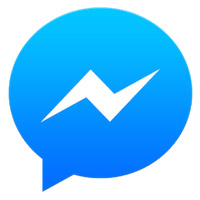
Facebook on Thursday unveiled its redesigned Messenger app, which replaces the list of conversations it previously displayed with a home screen that will let users perform more actions within a chat.
The Home tab now organizes Messenger into recent conversations, favorites, active users, and messages awaiting a response.
It has a shortcut that reminds users about Facebook friends’ birthdays.
Messenger now prepopulates users’ favorites list based on whom they exchange messages with most often.
The active users list identifies people browsing Facebook or using Messenger at any given point in time.
Improved search features help users find what they’re looking for, even if the conversation is ancient history.
An Active Now section indicates who is currently available.
Facebook’s Vision
The redesign is in line with what CEO Mark Zuckerberg announced in January, when he said Messenger would become “the next big platform for sharing privately.”
The goal was to position Facebook Messenger to provide an experience that would be better than the mobile Web, without the need to download additional apps.
“That’s the promise of a Web-based approach — none of those pesky apps,” said Rob Enderle, principal analyst at the Enderle Group.
However, working offline “could be problematic as a result,” he told TechNewsWorld.
Facebook earlier this week announced that members could send and receive SMS messages and texts in Messenger. While it’s only available for senders on Android, recipients of SMS messages can be on any platform.
SMS in Messenger supports standard text, images, videos and audio, as well as rich content like stickers, emojis and location sharing. However, members will have to use regular Facebook Messenger to send GIFs, send money, make voice and video calls, and book car-sharing rides.
The revamped Messenger app runs on Android devices only, noted Facebook rep Heidi Hagberg.
“iOS doesn’t currently support app permissions for accessing text messages and SMS,” she told TechNewsWorld.
Facebook “is going after all the unified channels of communications in order to be that productivity device — the personal connector,” observed Ray Wang, principal analyst at Constellation Research.
“It’s trying to do the voice-to-text and video-to-text so people might look at video, which nobody’s watching,” he told TechNewsWorld.
The new Messenger “is an improvement over most messaging class apps,” said Enderle, but Facebook is “pretty far off the mark with regard to a universal messaging app, in that this really doesn’t do a good job of replacing email or embracing voice or video conferencing as a true converged product might.”
Messenger for Business
Facebook is positioning the revamped Messenger as a tool for business use in addition to use by consumers.
“If you have email and calendar, you own a person’s lifestyle,” Wang said. “Facebook’s taking small steps that tie the consumer role to the enterprise role.”
The question is whether we’re willing to make the tradeoff between privacy and convenience on the one hand, and privacy and security on the other, he mused.
“With Messenger, there’s already a low level of trust as far as privacy is concerned,” observed Mike Jude, a program manager at Stratecast/Frost & Sullivan.
“That … is lethal in a business setting,” he told TechNewsWorld.
The Payoff for Facebook
Facebook eventually might place ads in Messenger, Enderle said, and it might offer advertisers information on the items that can be sold to people as well.
Facebook introduced sponsored messages, a program that lets businesses pay to deliver relevant marketing and promotional messages at scale to people already interacting with them.
In the United States, “we’re testing the ability to send sponsored messages with just a few select businesses,” Facebook rep Hagberg said. “The vast majority of Messenger users will not see sponsored messages right now.”
Ads “are the short-term game,” noted Constellation’s Wang. “I want better context around the social graph — and if I have that, I don’t need ads.”






















































I’ve just started using Superchat because it is a true universal messaging app — it connects my Facebook Messenger, gTalk, Skype, and Twitter accounts. So, from Superchat I can chat with all of my friends on those platforms as well as my friends on Superchat. Highly recommend Superchat.
I use as little of Facebook apps as I absolutely have too. I don’t trust Facebook anymore than I trust Google with my information. Both companies have a viable interest in collecting data about you. In order to satisfy Family and friends I tolerate Facebook but not much more than that. It helps me stay connected and it works fine for that. But Facebook will never invade my personal space anymore than that.